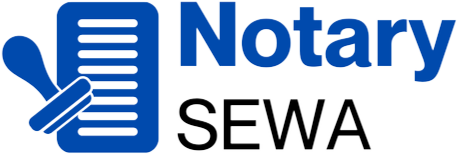
Legalization of documents is a critical process that ensures the authenticity of legal documents, protecting individuals and businesses from document fraud. In Nepal, legalizing documents through proper channels such as notary services, the Ministry of Foreign Affairs (MOFA) attestation, and apostille certification prevents forgery and unauthorized alterations. This article explores how the legalization process safeguards against document fraud and why it is essential for legal, business, and immigration purposes.
Understanding Document Legalization
Document legalization refers to the process of verifying the authenticity of a document by obtaining official endorsements from relevant government authorities. This process ensures that documents are legally valid and acceptable in both domestic and international jurisdictions.
Key Authorities Involved in Legalization in Nepal
- Notary Public – Verifies and authenticates legal documents.
- Ministry of Foreign Affairs (MOFA) – Attests to the validity of documents for international use.
- Embassies and Consulates – Provide legalization for documents used in foreign countries.
- Apostille Certification – Required for documents to be used in countries that are part of the Hague Convention.
How Legalization Prevents Document Fraud
Document fraud, including forgery, unauthorized alterations, and counterfeiting, poses significant legal and financial risks. Legalization mitigates these risks through the following mechanisms:
1. Verification of Authenticity
- Government authorities verify the legitimacy of documents, ensuring that they are issued by recognized institutions.
- Cross-checking with official records prevents the use of forged documents.
2. Prevention of Forgery and Tampering
- Legalized documents contain security features such as official seals, stamps, and signatures that are difficult to replicate.
- Any unauthorized modifications render the document invalid.
3. International Acceptance and Recognition
- Legalized documents comply with international standards, ensuring their acceptance in foreign jurisdictions.
- Avoids delays and legal complications in visa applications, business contracts, and academic admissions.
4. Legal Protection Against Fraudulent Claims
- Ensures individuals and businesses are not deceived by fake contracts, property deeds, or financial documents.
- Provides strong legal evidence in court proceedings.
Steps to Legalize Documents in Nepal
To ensure your documents are protected against fraud, follow these steps for legalization:
- Notarization – Have the document notarized by an authorized notary public. Learn more.
- MOFA Attestation – Submit the notarized document to the Ministry of Foreign Affairs for verification. More details.
- Embassy or Consulate Authentication – If required, get the document attested by the relevant embassy.
- Apostille Certification (if applicable) – For use in countries part of the Hague Convention, obtain an apostille certification. See Apostille Services.
Importance of Document Legalization for Various Sectors
1. Immigration and Visa Processing
- Legalized documents ensure smooth visa applications and avoid rejection due to document fraud.
- Required for work permits, residency applications, and travel authorizations. Check out certification services.
2. Business and Commercial Transactions
- Prevents fraud in contracts, agreements, and financial transactions.
- Legalized business documents enhance credibility in international trade. Business notarization services.
3. Education and Employment
- Verifies academic credentials for foreign universities and job applications.
- Prevents the use of fake degrees and certificates.
4. Property and Legal Matters
- Ensures property deeds, wills, and affidavits are legally valid.
- Protects against fraudulent claims in court cases. Learn about will notarization.
Common Document Fraud Cases and How Legalization Prevents Them
1. Fake Educational Certificates
- Legalization verifies degrees and transcripts, preventing the submission of counterfeit certificates.
2. Fraudulent Business Contracts
- Ensures agreements are legally binding and signed by authorized parties.
3. Property Ownership Disputes
- Legalized deeds confirm rightful ownership and prevent fraudulent claims.
4. Identity Fraud in Immigration
- Prevents the use of falsified passports, birth certificates, and marriage certificates for legal applications.
Conclusion
Legalization of documents is essential for protecting against document fraud and ensuring their acceptance in legal, commercial, and international transactions. In Nepal, services such as notarization, MOFA attestation, and apostille certification play a vital role in verifying document authenticity. By following the proper legalization process, individuals and businesses can safeguard their legal rights, avoid fraud-related risks, and ensure compliance with international regulations. For expert assistance, visit Notary Sewa for reliable document legalization services.
This article is optimized for keywords such as document legalization, authentication, notarization, fraud prevention, and certification of documents to improve search rankings. For more related services, visit Notary Sewa Services.
